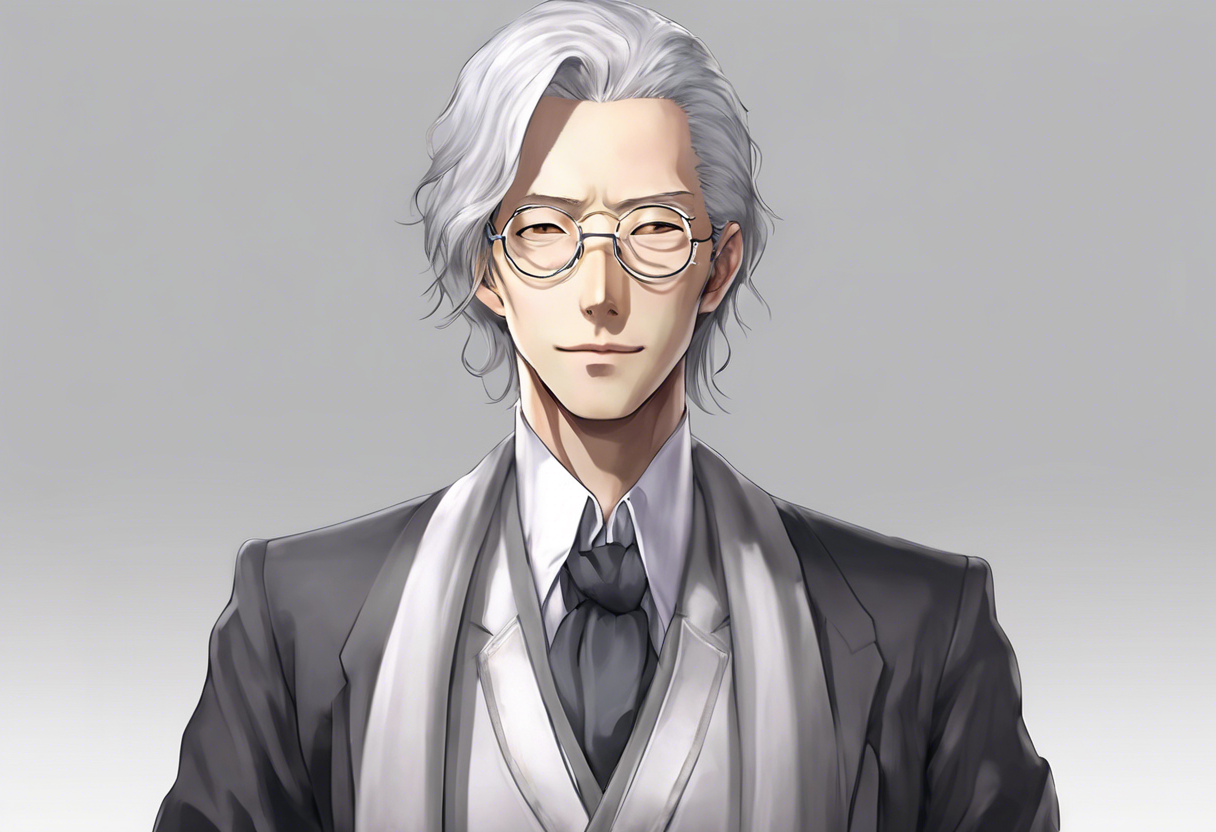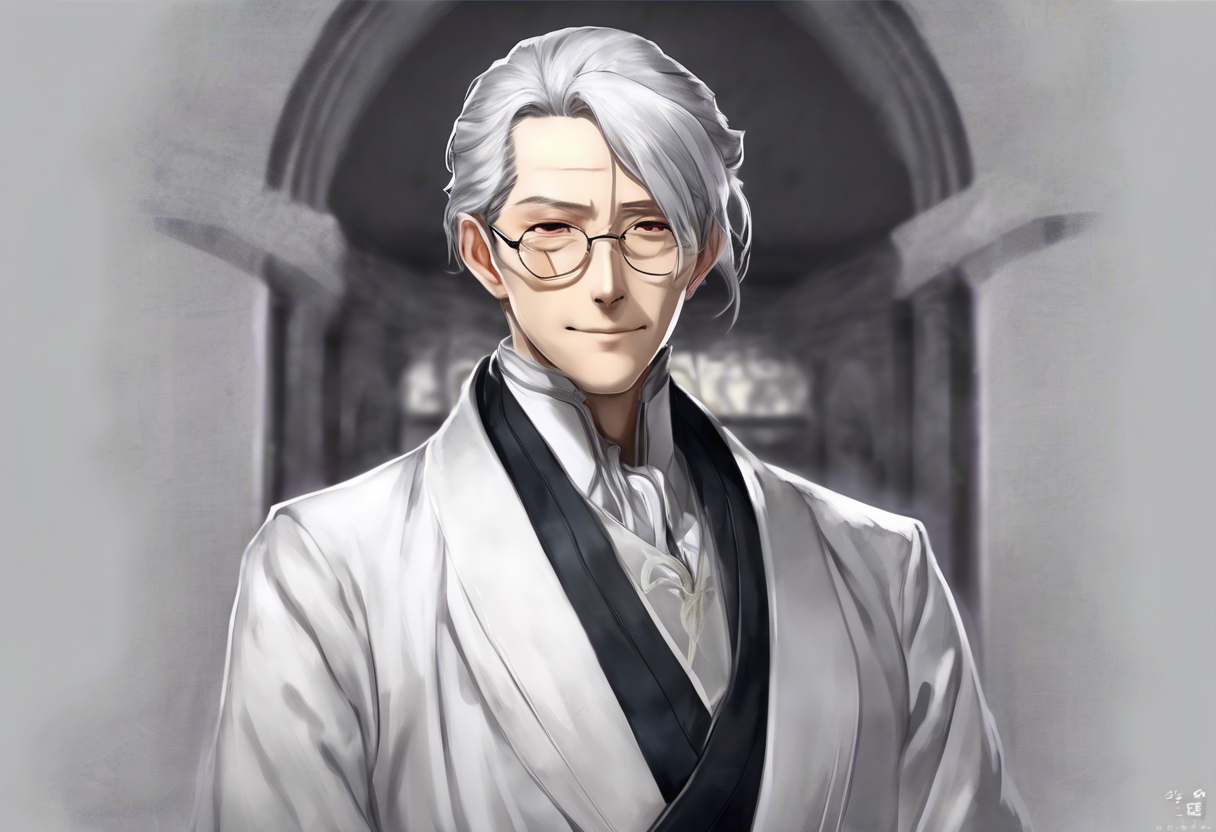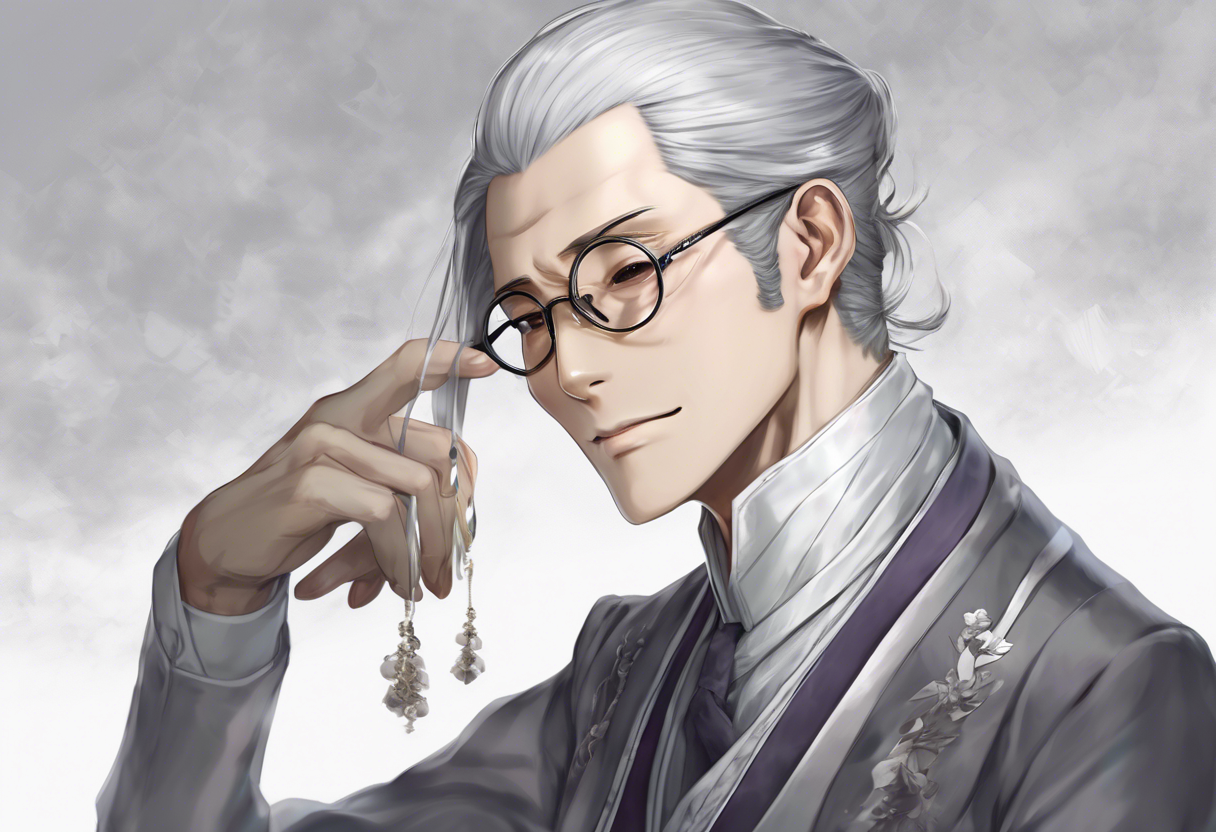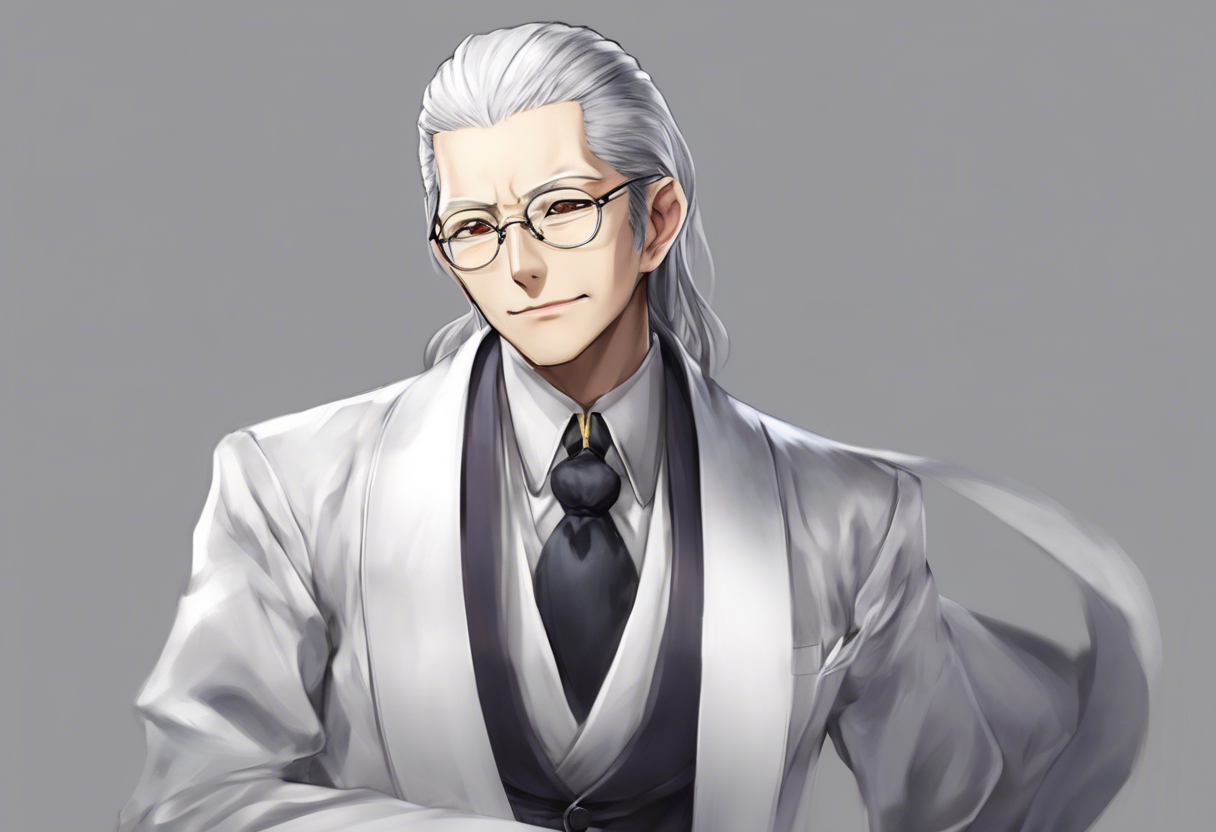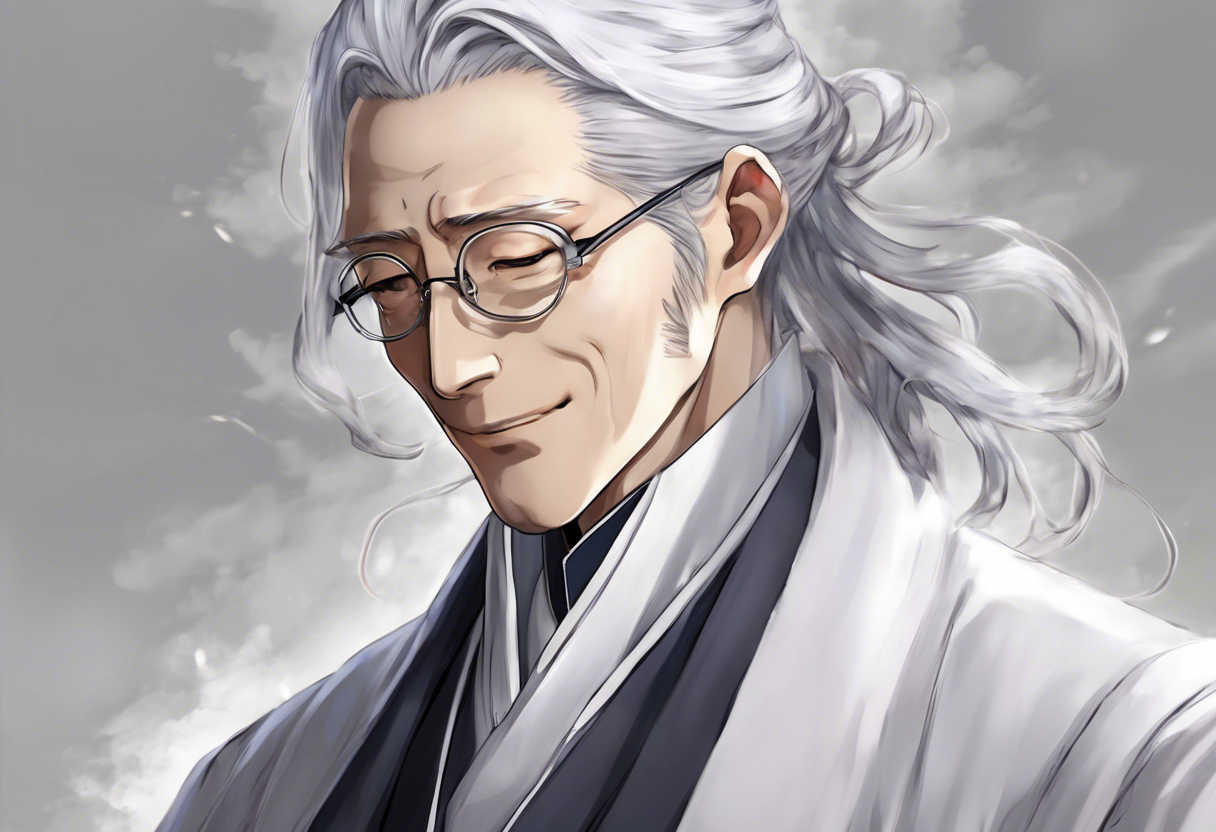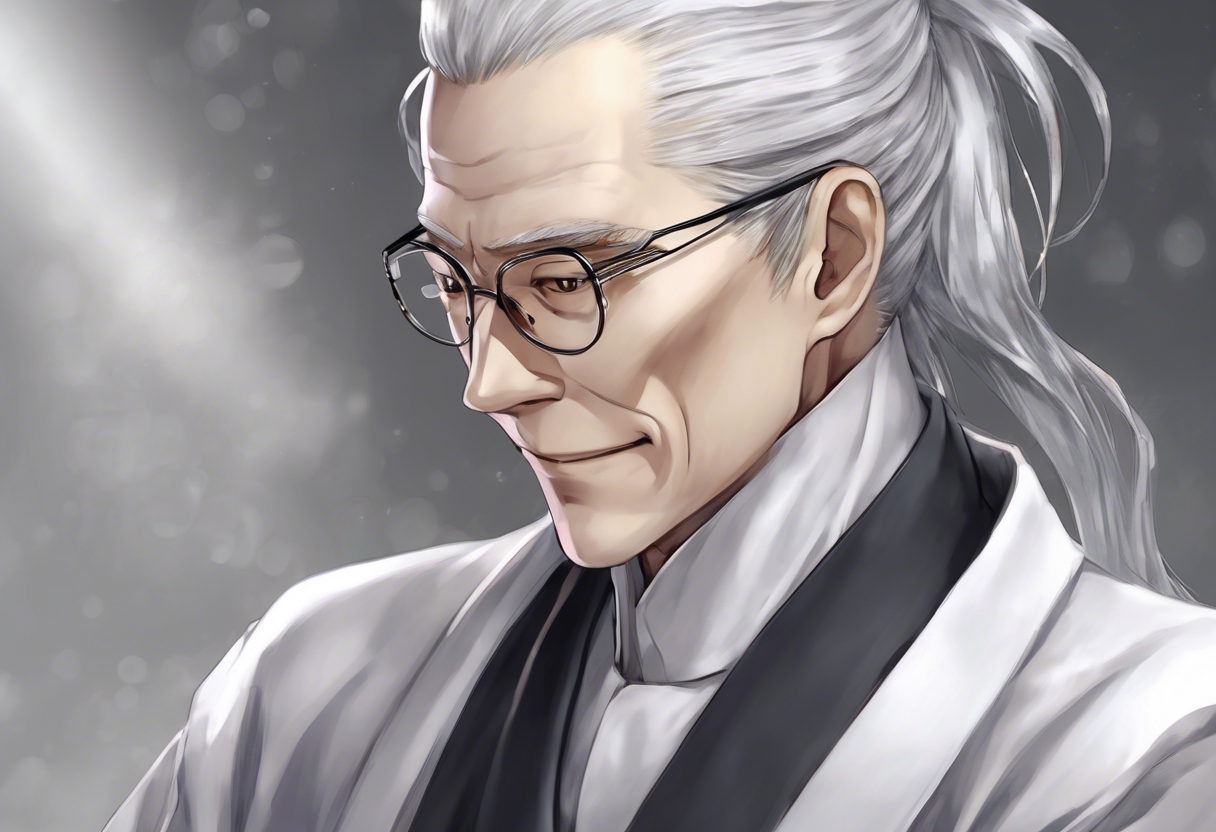Contents
Mirumo Tsukiyama: The Eccentric Patriarch of the Tsukiyama Family in Tokyo Ghoul
Introduction
Mirumo Tsukiyama, a pivotal character in the anime and manga series Tokyo Ghoul, is an extremely wealthy and eccentric ghoul known for his extravagance and significant influence within ghoul society. Created by Sui Ishida, Mirumo is the father of Shuu Tsukiyama, also known as the Gourmet, and is a member of the upper-class Tsukiyama family, renowned for their considerable wealth and influence in both human and ghoul societies [2][5].
Mirumo’s character is defined by his lavish lifestyle, deep emotional connections, and unwavering loyalty to his family. His narrative function is multifaceted, serving as a symbol of the complexities of ghoul society, the power of familial bonds, and the blurred lines between human and ghoul identities. Mirumo’s character draws from various literary and media influences, particularly in his portrayal as an enigmatic and charismatic figure, reminiscent of characters from Gothic literature and anime’s tradition of complex, aristocratic villains.
Role in the Story
Mirumo Tsukiyama’s role in the story of Tokyo Ghoul is marked by his involvement in several key plot developments. He is introduced as a major bidder at an auction, operating under the alias Croque Monsieur, which highlights his wealth and influence [1][5].
Throughout the series, Mirumo’s arc is characterized by his deep love for his deceased wife and his son, Shuu. Despite his eccentricities, he is a kind and compassionate figure, earning the undying loyalty of his servants and subordinates. When his manor is surrounded by Investigators, Mirumo calmly surrenders, hoping to live out his days as a human. However, upon learning that his son is in danger, he breaks free and slaughters his captors to ensure Shuu’s safety, demonstrating his fierce parental love and protective instincts [5].
Mirumo’s relationships are central to his character. His bond with Shuu is particularly significant, as he strives to protect and support his son despite the challenges and dangers they face. His interactions with other characters, such as Chie, Yomo, and Tōka, further underscore his role as a leader and a guardian within the ghoul community.
Character Analysis
Mirumo Tsukiyama’s personality is a blend of empathy, vision, and high emotional intelligence, typified by his ENFJ and Enneagram 2w1 personality types [3]. He is an empathic visionary, capable of understanding and connecting with others on a deep level. This empathetic nature is evident in his kindness to his servants and his unwavering dedication to his family.
Mirumo’s motivations are rooted in his love and loyalty. He is driven by a desire to protect and care for those he holds dear, particularly his son. This motivation often leads him to make pivotal choices that impact the plot significantly. For instance, his decision to escape and fight back against the Investigators to save Shuu showcases his strength and determination.
Despite his strengths, Mirumo also has weaknesses. His emotional attachment to his deceased wife and his son can sometimes cloud his judgment, leading to impulsive decisions. However, these vulnerabilities also add depth to his character, making him more relatable and human.
Themes and Symbolism
Mirumo Tsukiyama is intricately linked to several themes and symbols within the Tokyo Ghoul narrative. He embodies the theme of family and the enduring bonds that exist between loved ones, even in the face of adversity. His character also symbolizes the struggle for identity and acceptance, as he navigates the complexities of being a ghoul in a society dominated by humans.
The Tsukiyama family, with Mirumo at its helm, represents the upper echelons of ghoul society, highlighting the social hierarchies and class divisions within the ghoul community. Mirumo’s extravagant lifestyle and his role as a patron of the arts and culture further emphasize the theme of luxury and decadence, contrasting with the darker, more brutal aspects of the ghoul world.
Cultural Impact
Mirumo Tsukiyama has had a significant cultural impact on the Tokyo Ghoul fandom. His unique personality and actions have made him a favorite among fans, who appreciate his complexity and depth. In related media and merchandise, Mirumo is often featured, reflecting his popularity and the enduring interest in his character.
His influence extends beyond the Tokyo Ghoul series, as he contributes to the broader discourse on character archetypes in anime. Mirumo’s blend of elegance, eccentricity, and fierce loyalty sets a precedent for future characters in similar genres, influencing how creators develop complex, aristocratic figures.
Critical Reception
Critics and viewers have responded to Mirumo Tsukiyama with a mix of acclaim and criticism. Many praise his character for adding depth and nuance to the story, appreciating his emotional complexity and the way he challenges traditional notions of villainy and heroism.
Some critics have noted that Mirumo’s character, while intriguing, can sometimes feel detached from the main narrative, particularly in the earlier stages of the series. However, as the story progresses, his importance becomes more apparent, and his character is widely regarded as a significant contribution to the series’ richness.
Different interpretations of Mirumo’s significance also exist. Some see him as a symbol of the destructive nature of unchecked wealth and power, while others view him as a tragic figure, caught between his love for his family and the harsh realities of the world he inhabits.
Legacy
Mirumo Tsukiyama’s legacy in the world of anime is substantial. He has contributed to the evolution of character archetypes, particularly in the realm of complex, aristocratic figures. His influence can be seen in later anime series that feature similar characters, highlighting the impact of his unique blend of elegance, eccentricity, and fierce loyalty.
In shaping anime discourse, Mirumo’s character has prompted discussions about the nature of identity, family, and societal hierarchies. His portrayal challenges viewers to consider the complexities of characters who exist outside the traditional hero-villain dichotomy, adding a layer of sophistication to the genre.
References
- https://tokyoghoul.fandom.com/wiki/Mirumo_Tsukiyama
- https://tokyoghoul.fandom.com/wiki/Tsukiyama_family
- https://www.personality-database.com/profile/592451/tsukiyama-mirumo-tokyo-ghoul-mbti-personality-type
- https://www.fandom.com/video/yOoCXnqy/tokyo-ghoul-profile-mirumo-tsukiyama
- https://en.wikipedia.org/wiki/List_of_Tokyo_Ghoul_characters

